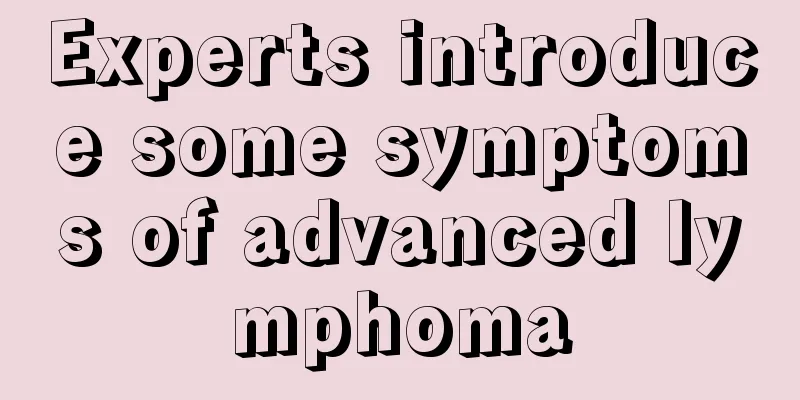Symptoms of lateral recess stenosis

|
In fact, there are many cases in clinical practice at present. These cases do not indicate which groups of people will be affected by this disease, but that it may occur in many groups of people. This is due to physical factors. Some people have lateral recess stenosis. There are many causes for this, but the main ones are congenital or developmental problems. Patients need to go to the hospital for reasonable examination and treatment based on the symptoms. In some clinical cases, the patient is diagnosed with lumbar disc herniation before surgery. However, there is no herniated disc during the operation, or only a small protrusion. The main lesion is lateral stenosis of the spinal canal compressing the nerve roots, which is specifically called lateral recess stenosis to distinguish it from main spinal canal stenosis. The lateral recess refers to the narrow space extending laterally from the spinal canal, which mainly occurs in the trilobate spinal canal and is most typical at the lower two lumbar vertebrae. It is generally believed that the anteroposterior diameter of the lateral recess less than 3mm is stenosis, more than 5mm is normal, and those in between are relatively stenosis. Why does the lateral recess become narrow? Congenital factors can cause lateral recess stenosis. The lateral recess of the trilobate spinal canal is deep and the anterior-posterior diameter is small, so the factors of stenosis exist from the developmental stage. Another important factor contributing to stenosis is degeneration. The intervertebral disc degenerates, the annulus fibrosus bulges and calcifies, the posterior superior edge of the vertebral body proliferates, and it protrudes from the front to the back into the lateral recess; after the intervertebral disc stenosis, the superior articular process of the lower vertebra moves upward; the isthmus proliferates, the yellow ligament thickens and calcifies, and it protrudes from the back into the lateral recess; the degenerative vertebral body slips anteriorly or posteriorly, all of which can contribute to lateral recess stenosis. What are the symptoms of lumbar lateral recess stenosis and how to treat it? The disease mostly occurs in middle-aged people and above, and is more common in men than in women. This may be because men bear heavier loads, the lower lumbar spinal canal is more likely to be clover-shaped, and the space around the nerve roots is small, making compression symptoms more likely to occur. Patients generally have a long history of low back pain and pain in the waist and legs. Leg pain is often more severe than that in patients with herniated disc. Fatigue or trauma can induce pain or significantly aggravate the symptoms. Neurogenic intermittent claudication is progressive, with the claudication distance decreasing from hundreds of steps to dozens of steps, and is relieved after squatting or sitting down to rest. Lower limb pain radiates along the lumbar or sacral nerve distribution area. Lateral recess stenosis is a condition in which the nerve root is mechanically compressed by adjacent structures and is not amenable to conservative treatment. Traction is only suitable for those with mild compression. For those who have been diagnosed, surgical treatment should be chosen to completely relieve nerve root compression. The surgical technique should be refined to avoid unnecessary expansion of decompression, so as not to affect the stability between spinal segments. |
>>: Can soap be used to wash hair?
Recommend
What to do if you get bitten by a mosquito on your face
There are a lot of mosquitoes in the summer, whic...
Be alert to the signs of acute myocardial infarction!
Most patients suffer from acute myocardial infarc...
How to self-check for brain cancer
How to self-check brain cancer is actually very s...
Can bone cancer be transmitted to others?
Is bone cancer contagious to other people? Bone c...
Salicylic acid ear drops
Salicylic acid ear drops have certain medicinal e...
Feeling blood in chest
Sometimes, we often feel chest tightness and feel...
People with stomachache should not eat anything. Remember these
For patients with stomach problems, diet is very ...
What are the examination items for gallbladder cancer
Gallbladder cancer is a common cancer that causes...
Is fibroid tumor harmful to human body?
As people's living standards continue to impr...
How to treat spots on the forehead
Spots can appear on many parts of the face. Altho...
Put radiation-proof plants in front of the computer
Electronic products have been integrated into tho...
How long can you live with advanced laryngeal cancer?
For patients with laryngeal tumors, we need to di...
Can prostate cancer be cured?
Can prostate cancer be cured? The course of prost...
What are the precautions for preventing osteosarcoma recurrence
If osteosarcoma recurs, it needs to be controlled...
Can I drink water before a urine test? What are the effects?
Urinalysis is a very simple medical test item. Ge...









